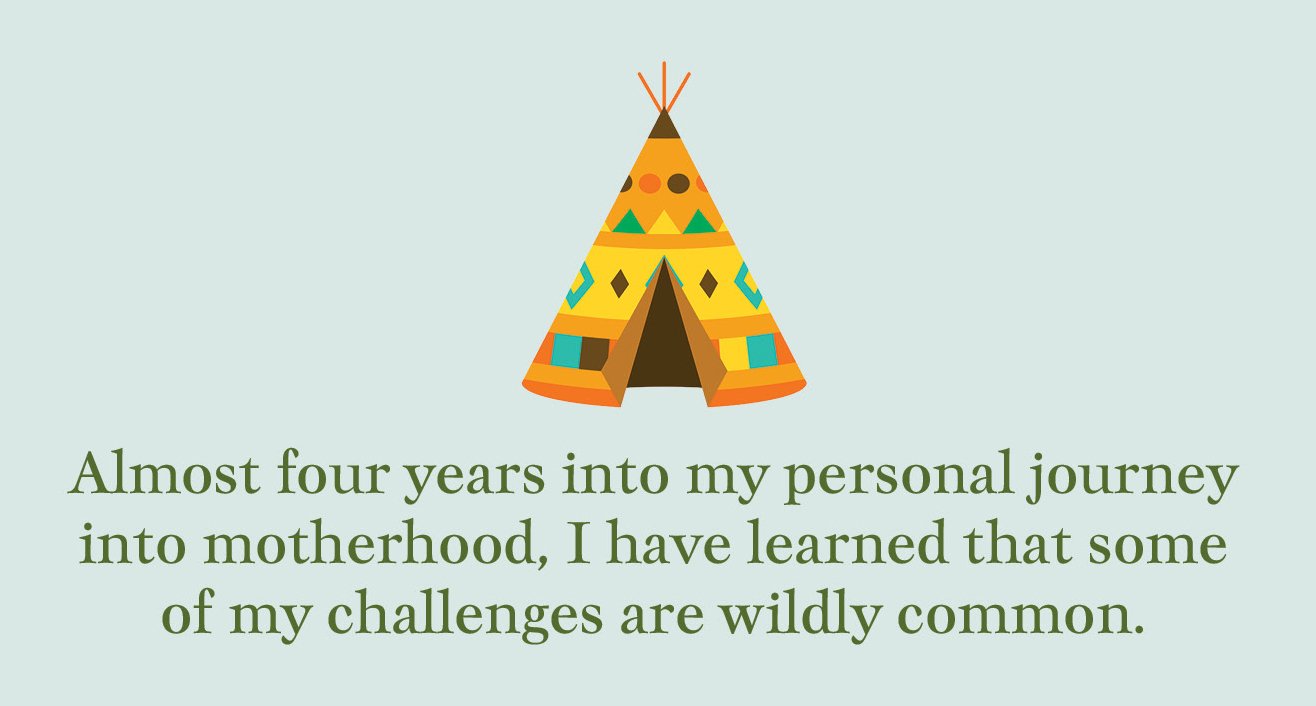By Miriam Dowd-Eller
Almost four years into my personal journey into motherhood, I have learned that some of my challenges are wildly common. Near-constant sensory and logistical overwhelm, deconstructing of (well-intended) pre-baby idealism, hard-to-communicate grief and resentments, and the occasional dose of blinding hot rage or anxiety. My journey has also been, however, a powerful invitation to a rite of passage through and beyond what author Beth Berry calls “Motherwhelm.”
Berry explains, “The fact that motherhood overwhelms us is not a sign of weakness but an indicator of importance. […] Motherwhelm isn’t a problem, it’s a rite of passage. Once we recognize it as such and honor these intense times (and intense seasons of our lives) for the potential they have to help us get clear on what we want and what no longer serves us, we can use that intensity to our advantage.”
As someone who gave birth six weeks into the Covid-19 lockdown (plus having some background in community-building, training as a postpartum doula, and acute awareness of industrialization and individualism), my personal rite of passage has kept leading me to this mantra found on berkana.org: “Whatever the issue, community is the answer.”
Caring for your child must extend to include caring for yourself in a pretty radical way—breaking down the barriers of internalized hyper-individualism and building your community. Because we [co-facilitator and owner of Earthwell, Emily Adama] wanted to support this process for ourselves and the mothers in our community, we developed retreats for mothers to attend as a one-time experience, but also to dig a little deeper into a ReVillaging mindset. “What can I shift inside myself to invite more/better community into my life?” It also supported collective brainstorming strategies yielding ideas such as, “How about a dinner co-op? a babysitting co-op? a women’s group?... Or maybe I just need to accept more help when people offer it.” Through our seasonal day-long retreats, we offer mamas a chance not only to nourish themselves in what might look like a typical “self-care day” and network...but also a chance to look at a Revillaging mindset as well as some practical strategies.
REVILLAGING STEP 1:
Acknowledge just how deeply most of us have lost our village.
We have all heard the saying “it takes a village to raise a child,” but motherhood inside of a modern, western society is often a daily slap in the face of just how much we’ve lost. The joyful independence and freedom that was the signature of my pre-baby years, is in stark contrast to the feeling of loneliness and anxiety I’ve felt at times trying to re-weave a healthy, involved, and vibrant network for myself and my family. Yet, knowing something theoretically doesn’t mean it manifests before your eyes just because you want it to.
Hidden within holistic child-rearing advice can lie harmful unintended consequences for the perfectionists among us. Because most of us live in a culture that has lost an intact village (a trust-worthy walkable network of friends and relatives), applying idealistic standards of motherhood to ourselves (however deeply beautiful the vision) can be a recipe for toxic perfectionism and self-abandonment. Beth Berry explains it like this:
Though self-abandonment is something most people struggle with in some way or another, motherhood is a breeding ground for this insidiously self-destructive behavior. From the time children are born, their needs are intense, relentless, and literally screamed in our faces. Luckily for them (and the human race) we are biologically wired to respond to their needs, even when it means setting aside our own. […]
In the United States especially, our social policies for supporting families pale in comparison to our first world counterparts. “In a study [by Baylor University] of about 200,000 children in 20 developed nations, the United States ranked lowest in overall policies aimed at helping parents support children.” More recently than the vague notion of a pre-industrial “village” is the social support that religious groups (such as churches and synagogues) used to provide for many families. It is no secret there has been a massive decline of active participation in religious life in the last few decades, but the need for shared care, connection, and values has not. Many families are consciously, or unconsciously, searching for those needs to be met elsewhere. Our culture has been swiftly driving far away from that of a sustainable, earth-honoring society long before we were born. So, if we cannot (personally) reverse hundreds of years of cultural change to re-create the perfect village-like experience for our children…what can we do?
Acknowledging these massive shifts in societal structure in the last century puts “Revillaging” in a greater context. We need to understand that to come to terms with our losses is not a one-and-done step. The goal is to continually pay attention to “the loss of a village” as one possible reason for overwhelm and resentment. It isn’t to be used, certainly, as just one more reason to avoid taking personal responsibility for your happiness, but in fact, to make an appropriate evaluation of your struggles in the context of modern parenting and to seek solutions that start from this understanding.
REVILLAGING STEP 2:
Pro-actively identify and work with your MotherWhelm and Resentments.
I invite you to consider that failing to meet some of your child’s physical, mental, spiritual, social, and emotional needs is not because of personal failure. Strategically letting go of bits of idealism under unideal circumstances can be deeply healing for a nuclear family household trying to live as healthy and holistically as possible. Letting go of being “the one-woman village” for our children allows us to see the context by which our children have unmet needs and the context by which we have unmet needs. Both sets of needs—children’s and parents’—are equally worthy of being acknowledged, grieved over, and tended to.
REVILLAGING STEP 3:
Get support & build courageous connections.
As Mothers, ReVillaging takes seeking new and different connections for physical and emotional support (for you and your kids) that may take many different forms.
Seeking connection with other mothers with shared values (affinity groups) can be vital. You can have what Dan Siegal calls your four basic needs met: to feel safe, seen, soothed, and supported. Instead of relying 100% on your partner or family for meeting these needs, spreading out your emotional care network can go a long way in feeling whole.
In our seasonal retreats, we use journal prompts, sensitive group facilitation, embodied co-regulation practices, easy-to-learn group songs, mindfulness meditation, nature-connection, gentle yoga, and deep relaxation techniques to proactively use the challenges of motherhood as fuel for digging into transforming your life from the inside out. Putting aside the notion that having needs makes you “needy,” we actively help mothers identify and claim basic needs (such as sleep, alone time, or cultivating an identity outside motherhood) as worthy of being met.
Commonly unmet needs mothers face that we support during EarthWell’s ReVillaging retreats:
To be witnessed and validated by people in similar life experiences.
To feel belonging and connection to a group of women.
Extended time alone.
To have meals cooked for us.
Uninterrupted conversations.
Soothing sensory environment.
Deep relaxation (to counteract the hyper-vigilance of keeping small humans alive).
To voice their grief and challenges, just as much as their joys.
To place infant/child mental health alongside maternal mental health and to look for lifestyle strategies and solutions that overlap.
If singing out loud with a group of mothers (of all ages/stages) who are creatively dismantling internalized hyper-individualism while dreaming up solutions that center re-connection sounds like a great way to spend a day, join us at EarthWell!
Miriam Dowd-Eller is a yoga/movement teacher and massage therapist with a focus on the mothering years. She co-facilitates seasonal retreats at EarthWell Retreat Center in Manchester. She can be contacted at miriam.earthwell@gmail.com.




































































































































































































For the modern toddler parent, potty training is an important—and often overwhelming—rite of passage. With an especially willful child, potty training can devolve into begging, bribing, breakdowns, and giving up. The common phrase repeated on modern mommy blogs and parenting influencers is to “wait until your toddler is ready!”